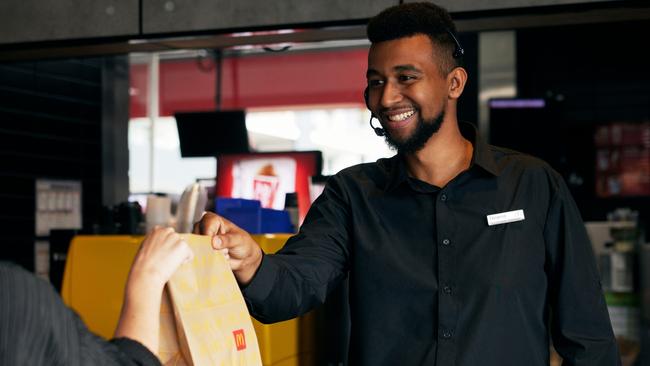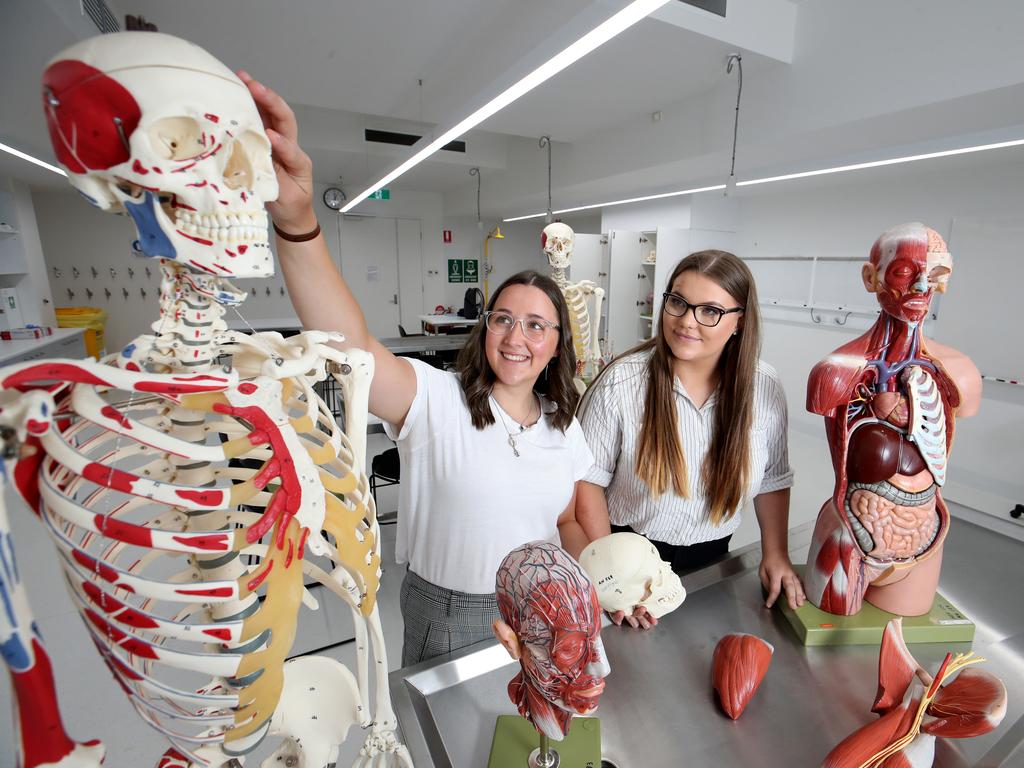Break down the walls between university and tech training: Jobs and Skills Australia
Flipping burgers can count towards a uni degree, through a work-study scheme for the fast-food industry that is breaking down the barriers between academic study and on-the-job training.

Fast-food giant McDonald’s is taking on academia by offering its staff shortcourse “micro-credentials’’ that can count towards a university degree.
Having issued more than 50,000 training qualifications in retail, food safety, leadership and management through its own registered training organisation, McDonald’s now has its sights on the university sector.
It is trialling an Archways of Opportunity program that it claims will shave as much as $3500 from the cost of a university degree for every micro-credential earned.
Partnering with Capability Co, it is recognising employees’ skills gained on the job by issuing micro-credentials that can be used as a credit towards subjects at Torrens University and the University of South Australia, and cut as much as a year of study from a three-year degree.
The skills to be recognised by the scheme include communication, engagement and coaching, problem-solving and leadership.
McDonald’s says the partner universities will give credits towards undergraduate degrees in business, management, accounting and data, cybersecurity and information technology.
McDonald’s Australia director of learning and development Mandy Sharp said the fast-food giant was one of Australia’s largest employers of young people, and had 115,000 staff working across more than 1030 restaurants.
“(We’re providing) the possibility for our employees to gain certified recognition of the skills they learn while working at Macca’s, and being able to use these to save time and money when it comes to study,’’ she said.
“Especially for people from regional or remote areas, or for people who may not have thought of university as an option … that’s an exciting advantage for a young person.’’
Capability Co chief executive Kate Britt said the McDonald’s partnership would help all workers, regardless of background, gain access to “quality education and fulfilling careers’’.
“By recognising the capabilities developed through real work and experience, we are creating new pathways for lifelong learning and career progression,’’ Ms Britt said.
Tom Habtewold, a McDonald’s restaurant manager at Kellyville in Sydney’s northwest, is one of the first employees to take part in the micro-credential pilot, after more than a decade working for the company.
“I don’t know where my career will take me yet, but to be able to learn on the job, get paid and have the option to have all of this count towards … university is incredibly exciting,’’ Mr Habtewold said.
The McDonald’s deal sets a precedent for other fast-food chains to team up with universities keen to enrol more students outside the traditional school-to-campus pathway.
It comes as employers welcomed plans for “hybrid qualifications’’ after Jobs and Skills Australia demanded greater collaboration between universities and vocational training providers such as TAFE.
In a new report, JSA found the care sector, net-zero energy, defence, mining and digital transformation would need workers trained through both vocational education and training and universities.
The report calls for a national credit transfer system so workers with vocational qualifications, such as a trade or certificate, can have their learning count towards a university degree.
It also recommends that universities, TAFE and private training colleges devise preparatory courses that are recognised nationally across universities and VET providers.
“Tertiary harmonisation would result in a more ‘joined-up’ tertiary system,’’ the report states.
“Large numbers of students already move from VET to higher education and vice versa.
“Those pathways are not always easy to navigate, and appropriate credit for pre-existing knowledge and skills is often difficult to obtain.’’
Australian Industry Group chief executive Innes Willox said the nation “desperately needs’’ to integrate work-based training with academic study.
“It’s time to move beyond arguments about different parts of the sector and patch protection,’’ Mr Willox said.
Business Council chief executive Bran Black said VET must be linked closely with industry.
“Short, stackable courses will be increasingly essential in a rapidly changing economy, particularly with the opportunities afforded by AI (artificial intelligence),’’ he said.
Federal Education Minister Jason Clare said Australia would not be able to fix its skills shortages “unless we better integrate higher education and vocational education and training’’.
Universities Australia chief executive Luke Sheehy said that “to meet Australia’s growing skill demands, we must break down the walls between vocational training and universities’’.







To join the conversation, please log in. Don't have an account? Register
Join the conversation, you are commenting as Logout